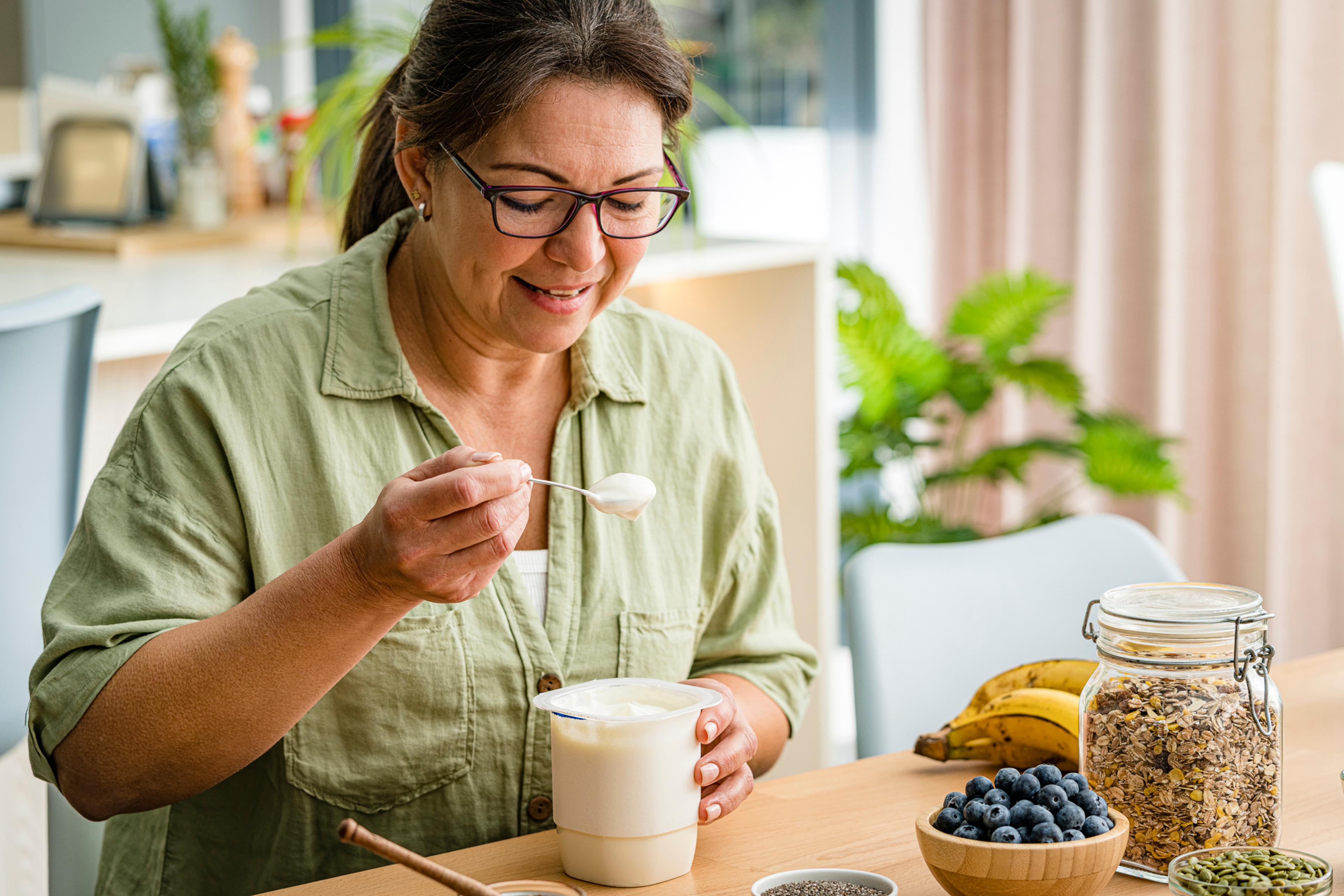What is the Connection Between Diabetes and the Gut Microbiome?

Lindsay Knake
| 3 min read
Lindsay Knake is a brand journalist for Blue Cross B...

Key Takeaways
- A new study published in Nature Medicine found a potential link between the gut microbiome and Type 2 diabetes, with certain microbial species associated with an increased risk of the disease.
- Researchers say a diet rich in prebiotics and probiotics, found in foods like fruits, vegetables and fermented items, can support a healthy gut microbiome and lower the risk of Type 2 diabetes.
- To promote a healthy gut microbiome, experts recommend eating at least five servings of fruits and vegetables daily, limiting added sugars and getting regular exercise and health screenings to reduce the risk of chronic health conditions.
The gut microbiome may have a connection with Type 2 diabetes, according to a large, comprehensive study.
The 2024 study, published in Nature Medicine, looked at data of more than 8,100 people in the United Statesand several other countries. Participants had normal blood glucose levels, prediabetes and Type 2 diabetes. Researchers found certain microbial species were associated with an increased risk of Type 2 diabetes.
Let’s look at the results of the study and other research on the topic and what you can do to improve the health of your gut microbiome.
The gut microbiome and Type 2 diabetes
The gut microbiome is a collection of trillions of thousands of species of bacteria, fungi and viruses in the intestinal tract, according to the Cleveland Clinic. Food and drinks are fuel for these microbes, which breakdown nutrients into enzymes that help your body synthesize essential short-chain fatty acids and certain vitamins. All individuals have different microbiomes, which can change daily depending on diet, medications and health conditions.
A healthy gut microbiome is essential for the anti-inflammatory response and healthy digestive and immune systems. An imbalance of the gut microbiome, known as gut dysbiosis, is linked to health conditions such as Type 2 diabetes, obesity and inflammatory bowel disease.
The 2024 Nature Medicine study found specific strains of bacteria are associated with lower or higher risk of developing diabetes. For example, a strain called Prevotella copri is more common in those who have Type 2 diabetes than those who do not. The microbe produces large amounts of branched-chain amino acids, and those who have chronically high levels of these amino acids have a higher risk of obesity and type 2 diabetes.
A 2021 study published in Nature Medicine looked at data and the diets of more than 1,100 people in the U.S. and United Kingdom. Researchers found eating a diet rich in plant-based foods had more microbes associated with better blood sugar control after meals and lower markers if inflammation.
How to improve your microbiome
A diet rich in prebiotics and probiotics supports beneficial gut microbiota and limits the growth of harmful microorganisms.
Probiotics are active microbes, bacteria and yeasts found most often in fermented foods such as:
- Yogurt and kefir
- Kombucha
- Sauerkraut and kimchi
- Tempeh
Prebiotics are generally fruits and vegetables high in fiber that ferment during digestion and provide food for probiotics. Examples of prebiotic foods include:
- Asparagus
- Artichokes and leeks
- Garlic and onions
- Mushrooms
- Whole oats and barley
- Bananas
- Apples
- Berries
- Chia seeds
Eat foods rich in both prebiotics and probiotics, along with lean meats and legumes. U.S. Dietary Guidelines recommend five servings of fruits and vegetables per day and 28 grams of fiber for a 2,000 calorie per day diet.
Limit added sugars and ultra-processed meats, which increase the risk of developing Type 2 diabetes. No more than 10% of your daily caloric intake should come from added sugars, or less than 12 teaspoons a day, according to the U.S. Centers for Disease Control and Prevention.
In addition to diet, get regular exercise, adequate exercise and routine health screenings to reduce risk of Type 2 diabetes and other chronic health conditions.
Image: Getty Images
Related:





